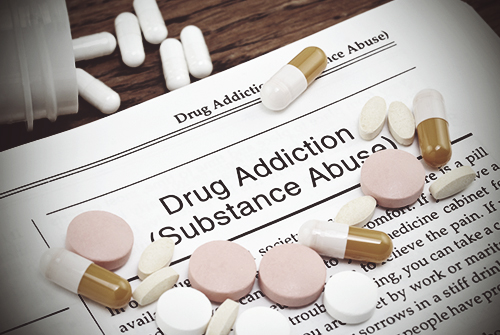Law enforcement agency and other stakeholders have shown concern about reversing the trend of the UN’s record on drug abuse which says some 35 million people worldwide suffer from drug use disorders.
The 2019 World Drug Report provides a global overview of the supply and demand of opiates, cocaine, cannabis, amphetamine-type stimulants and New Psychoactive Substances (NPS) as well as their impact on health.
It stated, through improved research and more precise data, that the adverse health consequences of drug use are more widespread than previously assumed.
Willing to reduce the rate of drug abuse in the country, Nigeria has not only been sensitive to the observance of the World drug day but making frantic efforts to reduce drug and substance abuse.
According to the Executive Director, UNODC, Mr Yury Fedotov, the findings of World Drug Report complicates the global picture of drug challenges, underscoring the need for broader international cooperation to advance balanced and integrated health and criminal justice responses to supply and demand.
Fedotov said that prevention and treatment continue to fall short in many parts of the world, with only one in seven people with drug use disorders receiving treatment each year.
“This is particularly striking in prisons. 2019 year’s report provides in-depth analysis of drug use and its adverse health consequences in prison settings.
“This suggests that the prevalence of infectious diseases such as HIV, hepatitis C, active tuberculosis and related risks are disproportionately higher among prison populations than among the general population, in particular among those who inject drugs in prison,” he said.
Fedotov said that the report shows that effective treatment interventions based on scientific evidence and in line with international human rights obligations were not as available or accessible as they need to be.
He called on national governments and the international community to step up interventions in order to address this gap.
The NDLEA chairman, Col. Muhammad Abdallah (rtd), said the global consensus was that the implementation of the commitments in the past decade was such that there were still gaps in the execution of the plan and action on international cooperation towards an integrated and balanced strategy to counter the problem of drugs.
Abdallah said the origin of Nigeria’s drug trafficking and by extension drug abuse can be traced to the period just after the Second World War when Nigerian soldiers who had served in Burma, India, came back with seeds of cannabis sativa plants.
He said the planting experimentation led to rise in its cultivation, currently predominant in the South Western Region of Nigeria but with cultivation recorded on almost all the states, notably in Benue, Rivers, Kogi, Plateau, and Taraba States.
“Drug abuse or substance abuse if you like, is no respecter of religious persuasion, status, educational qualification, gender identity, ethnic affiliation, occupational or professional calling, political inclination and increasingly demographic strata.
“We still have drugs assailing public health and safety. We are daily confronted with a plethora of social problems resulting from drug abuse.
“The 2019 World Drug Report painted a frightening global picture of drug challenges, underscoring the need for broader international cooperation to advance balanced and integrated health and criminal justice responses to supply and demand.
“The report shows that people who use drugs are now 30 per cent higher than it was in 2009, and a higher prevalence of use of opioids in Africa, Asia, Europe and North America compared with the 2019 prevalence rate.
“The 2018 Nigeria Drug Use Survey Report released by the UNODC reveals a pervasive drug use problem in the country.
“The report puts the drug use ratio at 14.4 per cent among age group of 15 to 65 years of our population, indicating that 14.3 million Nigerians have come in contact with drugs within that year alone,” he said.
The NDLEA boss said the agency had been in the forefront of advocacy against drug abuse and commemoration of International Day against Drug Abuse and Illicit Drug Trafficking.
Abdallah added that the agency had also used the day to highlight the dangers of drug use and the illegal drug trade and provide educational materials to stakeholders all over Nigeria.
He said the drug situation in Nigeria was dire and called for concerted efforts of all and sundry including the military.
Oyeyemi described drunkenness as one of the reasons for increase in crashes during Yuletide and beyond, hence the need for the test for drivers.
He said the corps would be resolute in its commitment to changes that could stem the tide of crash fatality rate, using the end-of-year special patrol operations as a launch pad in which checking drug abuse among drivers was inclusive.
He, however, said the Corps would not relent in its efforts and would continue to devise new strategies toward addressing road crashes challenges in the country.
He also urged passengers to equally monitor their drivers over reckless driving, driving under the influence of alcohol and other road vices.
“Following the need to bridge the existing gap in communication between the motoring public and the Corps, the Corps has established the National Traffic Radio 107.1 FM for daily traffic updates for travellers, effective enlightenment and education on best road culture among others.
“The station is to serve as a veritable platform for the motoring public to report any obstruction, incidences of crash or traffic-related emergencies.

